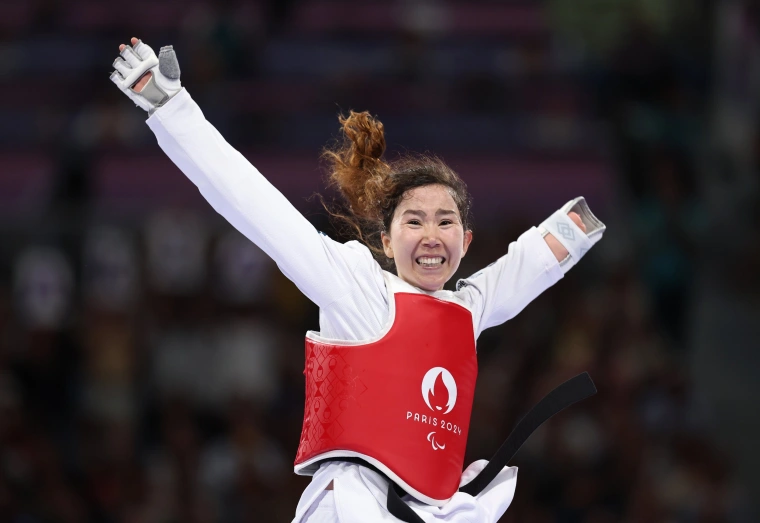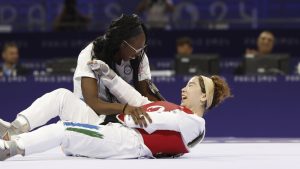Zakia Khudadadi Secures Historic Paralympic Bronze for Refugee Team
2 min read
Zakia Khudadadi wins first-ever Paralympic medal for the refugee team with taekwondo bronze

Zakia Khudadadi wins first-ever Paralympic medal for the refugee team with taekwondo bronze
On Thursday, Zakia Khudadadi achieved a remarkable milestone by becoming the first athlete from the Refugee Paralympic Team to win a medal at the Paralympics. Competing in the women’s K44 -47kg taekwondo category at the Paris Games, Khudadadi clinched the bronze medal, making history for her team and setting a powerful example of resilience and hope.
Khudadadi, originally from Afghanistan and now residing and training in France, expressed her elation and determination in a statement to the press. “This medal is fantastic for me, but also for all the women in Afghanistan and all the refugees,” she said. “We are not giving up on equality and freedom in my country.”
The path to her historic achievement was challenging. Khudadadi faced a tough quarterfinal against Uzbekistan’s Ziyodakhon Isakova at the Grand Palais, where she was defeated. However, she rebounded strongly by winning her repechage match against Turkey’s Nurcihan Ekinci. The bronze was secured when her next opponent, Morocco’s Naoual Laarif, withdrew from the competition.
At 25 years old, Khudadadi’s journey to the Paralympics has been fraught with adversity. She made her Paralympic debut in Tokyo three years ago, having fled Kabul as the Taliban seized power. Initially trapped in Afghanistan, she faced a dire situation where her training was confined to her backyard. Her plight garnered international attention through a viral video, which ultimately helped her escape and continue her training abroad.

“I was told that, if I stayed, the Taliban would come and take me because I was a female athlete disobeying their rules, “I had only one choice – to leave.” Despite the formidable obstacles, her determination never wavered.
Khudadadi was born with a forearm deficiency and began competing in Para sports at the age of nine. She has since achieved the distinction of being the first Afghan woman to compete in taekwondo at the Paralympics. Her perseverance and achievements have earned her a place on the International Olympic Committee’s Athlete Refugee Team, representing the millions of displaced individuals globally.
Following her historic win, Khudadadi voiced her hopes for the future. She expressed a wish that her success would inspire Afghan women, who currently face severe restrictions under Taliban rule, including being barred from education and requiring male chaperones for basic activities. “I hope that one day there will be freedom in my country, for all the world, for all the girls, for all the women, for all the refugees in the world,” she said. “And that all of us work towards that, for liberty and equality.”
Khudadadi’s triumph not only symbolizes a personal victory but also embodies the broader struggle for human rights and dignity. Her story serves as a beacon of hope and a reminder of the indomitable spirit that defines the refugee experience.